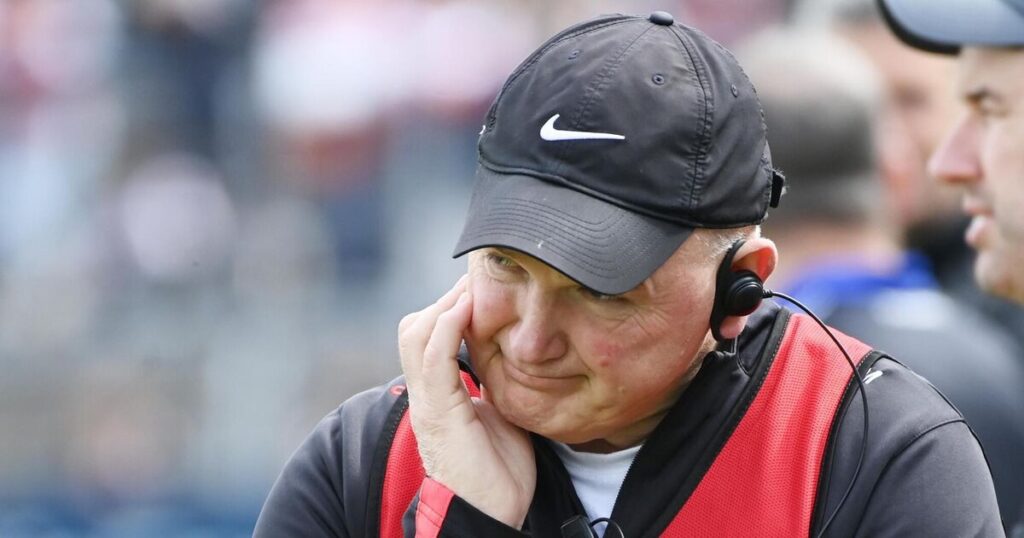No pre-arranged script existed within the Cork dressing room in the lead-up to their upcoming match, ensuring a uniform response to the inevitable question about achieving three consecutive victories. Nor was there an organized effort to deflect the topic.
Manager Ger Manley stated earlier this week that the possibility of a three-in-a-row triumph hasn’t been discussed once within the camp throughout their 2025 campaign, which is now nearing its conclusion.
In contrast, midfielder Hannah Looney has openly spoken about this team’s potential to become a “generational team” even before their back-to-back wins were secured last August.
At Tuesday’s All-Ireland final media event in Croke Park, captain Meabh Cahalane admitted that the prospect of three-in-a-row is “definitely” there in the back of the mind.
“It is a huge opportunity. As a group, there is no point talking about three-in-a-row unless you actually go and do it. We know it is going to take everything and more to get over Galway.”
Ironically, despite the county’s long-standing dominance, no Cork team has ever won the O’Duffy Cup for three consecutive years.
The team from 1970-73 remains the last group of women in red to achieve this feat, extending their dominance to a four-in-a-row with a one-point victory over Antrim in 1973, led by Marie Costine.
In the 52 years since, Cork’s total of 20 All-Ireland wins is only slightly less than the combined total of Kilkenny, Tipperary, and Wexford, which stands at 25 for the same period. However, while those three counties have all accomplished the coveted treble, Cork has never achieved more than back-to-back victories.
Sunday marks the eighth time in the past 52 years that a Cork team has aimed for three-in-a-row. All seven previous attempts have failed.
The Examiner headline read, “Shocker for Cork.” Joan Gormley’s goal with three minutes remaining turned a two-point Cork lead into a one-point defeat.
This marked a dramatic revenge for Dublin, who had suffered heartbreaking losses in the previous two finals. Mary O’Leary scored all 1-9 of the defeated Rebels’ points.
Kilkenny traveled to Ballinlough and defeated the champions on their home ground, thanks to an Angela Downey hat-trick.
Sinéad Millea’s 60-yard free kick, in the third minute of injury time, found the Cork net, giving Kilkenny the lead for the first time and securing their place in the final.
“Three players went up for the same ball and when that happens, no one is going to get it,” Cork boss Tom Nott said of the decisive free kick.
Wexford centre-back Mary Lacey was named player of the match, symbolizing a Model County defense that completely shut down the Cork attack, holding them to just three first-half points.
Cork half-forward Jennifer O’Leary described the winning defence as a “solid brick wall.”
Two late Síle Burns frees in the drawn game kept the three-in-a-row dream alive and earned Cork a second chance to secure a ninth consecutive final appearance. Cork did not lead the replay until the 53rd minute.
Aislinn Connolly and Brenda Hanney put Galway back in front. Gemma O’Connor’s equalizing free kick from distance, seven minutes into injury time, went wide.
A dominant third-quarter performance – during which the Cats outscored their opponents by 1-4 to 0-1 – propelled Kilkenny to their first All-Ireland victory in 22 years. This was arguably Cork’s worst final performance under Paudie Murray.
After the two previous All-Ireland finals had been plagued by excessive officiating, Liz Dempsey stood aside at the Gaelic Grounds to allow Cork and Galway to engage in a more physical contest.
In a tightly contested hour, the Tribeswomen’s displayed substance and steel delivered a first knockout championship win over Cork since 2010.


